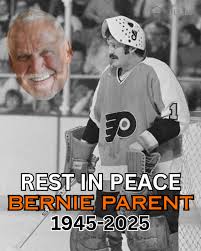
Introduction
Bernie Parent is a name synonymous with hockey excellence in Canada and beyond. As a Hall of Fame goaltender, his contributions to the National Hockey League (NHL) have made him a celebrated figure in sports history. His outstanding performance during the 1970s, particularly with the Philadelphia Flyers, solidified his status as a legend. Parent’s legacy not only showcases his various accolades but also emphasizes his influence on aspiring athletes and hockey enthusiasts across generations.
Career Highlights
Parent was born on April 3, 1945, in Montreal, Quebec. He began his professional career with the Boston Bruins in 1963, but it was with the Philadelphia Flyers that he gained fame. Parent played a crucial role in leading the Flyers to their first two Stanley Cup victories in 1974 and 1975, earning him the prestigious Conn Smythe Trophy as the playoff MVP twice. His incredible skills in the net, characterized by quick reflexes and strategic positioning, made him one of the most revered goaltenders of his time.
Diving deeper into his statistics, Parent recorded 232 wins, 168 losses, and 85 ties during his NHL tenure, with a goals against average (GAA) of 2.55. He was also recognized with the Vezina Trophy, awarded to the league’s top goaltender, twice in his career, marking him as a standout player throughout the early years of the Flyers’ franchise.
Legacy and Impact
Bernie Parent’s impact extends well beyond the ice rink. He has become a prominent figure in youth hockey, dedicating his time to mentoring young players and offering clinics aimed at developing their skills. Parent’s engaging personality and passion for the game continue to resonate with fans and players alike. He is often seen at Flyers games, sharing stories and inspiring the next generation of goaltenders.
As a testament to his undeniable influence, Parent was inducted into the Hockey Hall of Fame in 1984, a recognition that highlights his extraordinary contributions to the sport. Additionally, he remains active in various charitable endeavors, establishing himself as not just a hockey player but a role model within the community.
Conclusion
Bernie Parent’s story is a powerful reminder of excellence in sports and personal dedication. His legacy serves as an inspiration for many aspiring hockey players and fans across Canada and the world. As he continues to engage with the hockey community, there is no doubt that Parent’s influence will endure for many years to come. For those looking to understand the history of hockey and its icons, Bernie Parent’s journey is undoubtedly a significant chapter worth exploring.



